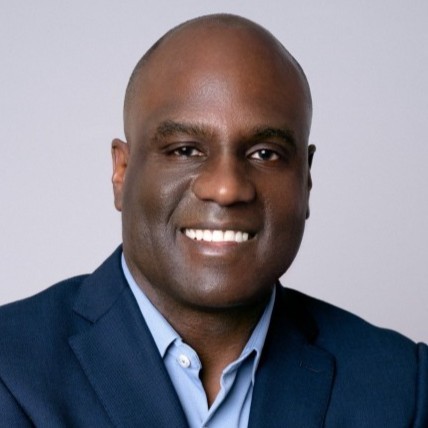How to Overcome These 4 Difficult Salary Negotiation Scenarios
Isn't it great when salary negotiations are simple? You, the recruiter, make an offer to a dream candidate. "That's perfect!" exclaims the candidate, who quickly accepts and signs on the dotted line — another great hire that's a done deal before lunchtime.
While simple scenarios like that are possible, salary negotiations can also be the stuff of nightmares, with candidates (and hiring managers) reluctant to talk about money, long back-and-forths, and unrealistic expectations.
Is it any wonder salary negotiations can be the most stressful part of the interview process?
"People lose their minds a little bit on all sides of the equation," Amy Miller, a Seattle-based recruiter for Microsoft, says about these often-emotional money talks.
In a high-stakes salary negotiation, you may encounter some hurdles that make it hard to reach an agreement that pleases all sides. In a recent webinar for LinkedIn Talent Solutions, Amy talked about four hurdles you may encounter in salary talks, and how you, as a recruiter, can clear them.
1. The candidate doesn’t want to talk about money
After an initial conversation, you've determined a candidate has the qualifications you're looking for. But is the job you're hiring for, and particularly the salary it pays, right for the candidate? That's information you need to have as a recruiter before you send that candidate on to talk to the hiring manager.
"No manager wants to come back from an interview high on an candidate, and then you roll in with the bad news a week later that, 'Gosh, he's $100,000 over our budget,'" says Amy. "So you [as a recruiter] have to have some idea of what the candidate is making now and/or what they expect to make in the future."
Unfortunately, recruiters often find that's easier said than done as many candidates approach talk of salary as a high-stakes poker game — and they aren't willing to show their hand.
"I get this is a weird conversation to be having in our first or maybe second phone call,” Amy says.
If you're faced with a candidate who balks at money talk, Amy suggests telling the candidate exactly why you're asking about money. "'I'd love to understand better what it would take for you to make a move, or make a decision to join our team,'" Amy suggests as a way to approach the conversation.
If that doesn't work, Amy suggests de-personalizing the conversation. Suppose you're interviewing a candidate for a tech job. Instead of asking the candidate about her salary history or expectations, have a generic talk about the industry.
"'Let's talk about what the market says about what a software engineer makes,'" Amy suggests as an opening line. "'I read this article that says talent in this field is hard to find, which drives up prices. What do you think of that?'"
Once the discussion is no longer about the candidate's personal money situation (present or future), Amy says the candidate will be much more willing to engage with you. "If you can take the person out of the discussion, you'd be amazed at how quickly that turns the conversation," says Amy, using herself as an example. "Now we're no longer talking about Amy's compensation, because that's weird. But if we're talking about what recruiters make, oh I got all kinds of opinions on that. We can talk about that all day long."
Before you know it, the floodgates are open and you and the candidate are having an open talk about money. "Try that with your engineers, with your accountants, with your receptionists — with all of these different positions and different kinds of people you're trying to hire," Amy suggests.
2. When the candidate won't start the bidding
Another piece of advice that job candidates, and some recruiters, get about the delicate dance of negotiating salaries: Don't be the first person to start the bidding by giving a number. The reasoning behind that advice is that forcing the other guy to commit to a number first gives you the upper hand.
"Just about every salary negotiating [article] on the Internet tells candidates not to name any numbers in the beginning of the interview process," Amy says. "I know you've probably read advice on the Internet that tells you not to talk to me about this. I get it. I don't know if I'd talk to me."
It may sound like a good strategy, but Amy sees the "Don't Speak First" rule as a recipe for one quiet meeting. "We're going to be kinda just staring at each other and nobody's going to say anything," says Amy. "Eventually, someone has to talk."
If necessary, Amy says, that someone can be the recruiter. "'Let me just sacrifice myself on the altar of too much information and tell you what we pay,'" Amy tells candidates. "That alone establishes credibility. [It says] I have nothing to hide; there's nothing for me to gain by withholding information from you." That atmosphere of trust and openness can go a long way toward a fruitful salary discussion.
3. When you have to offer a candidate below market rate
If you're a recruiter and you have to fill a position at a salary that's far below normal, you might feel like you've been given a "Mission: Impossible."
Amy recalls a time when, at a previous recruiting job, she was told to fill a crucial position. But this mission came with two complications: a.) The salary the hiring manager was offering was $20,000-30,000 below the typical salary for people in that particular field b.) She had to find someone quickly.
No pressure, right?
How did Amy respond to this impossible assignment? "I did what any sane recruiter would do," she laughs. "I stomped my foot. I locked myself in my office and cried for a little bit. I tried to wheedle my way out of it any way I could."
After her mini-meltdown, Amy began the search. She quickly zeroed in on an amazing candidate who fit the bill for the position she was trying to fill at that rock-bottom salary. But Amy had to break the bad news to the candidate that she couldn't offer much money.
"I called her up [and said], 'Hey, let me be real transparent with you from the gate,'" Amy remembers telling the candidate. "'I know you're probably making X, but this role is only paying Y.'"
It was then that Amy learned a crucial detail about the candidate.
"As it turned out, she lived literally five minutes from our office," Amy recalls. In the candidate's current job, where she was making $20,000 more than what Amy was offering, the candidate was commuting 90 minutes each way. The prospect of ending that long commute suddenly became a huge, and valuable, perk Amy was able to offer the candidate.
"Her exact words to me were, 'The three hours a day that I get back, that I can go to my son's t-ball games, you have no idea what that's worth to me. That's worth $20,000. That's worth $30,000. I'll do it!’ She's still there to this day."
The anecdote shows the importance of taking the time to get to know your candidates to see what's important to them. A lot of times, it's not salary. And if you don't have a lot of money to work with, you can get creative about what else you can offer your candidate.
"This compensation discussion has got to be about more than just the base salary," says Amy.
4. The candidate wants an unrealistic amount of money
Sometimes, it’s the candidate who has unrealistic salary expectations. Suppose you're hiring for a sales position that has a base salary of $50,000. What do you do when a candidate, emboldened by a "If you don't ask, you don't get" philosophy, suggests starting the talks at $100,000?
"We know that's not realistic for this market," says Amy. When faced with such an unreasonable salary demand, Amy likes to turn it around on the candidate. "I just simply say, 'Well gosh, help me understand where you came up with that number?'" she says. "'I'd love to understand what research you did that gave you that number.'"
Once you say that, Amy suggests, it's a good time to be silent. "Just wait," she says. "Silence is your friend in a scenario like that. A lot of times they're either going to come back to you and have some wackadoodle answer. Or they're going to say, 'Well, what DOES it pay?' Then you can redirect [the conversation] back to the Land of the Real."
So, yes, hurdles may be inevitable during salary talks. But there's no reason they need to be obstacles to a mutually satisfying agreement.
*Image by Don Voaklander
To receive blog posts like this one straight in your inbox, subscribe to the blog newsletter.
Topics: Recruiting tips Compensation
Related articles




